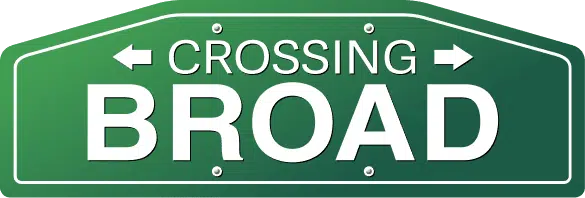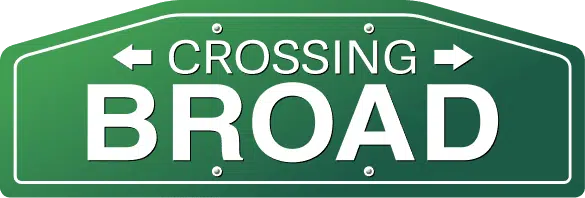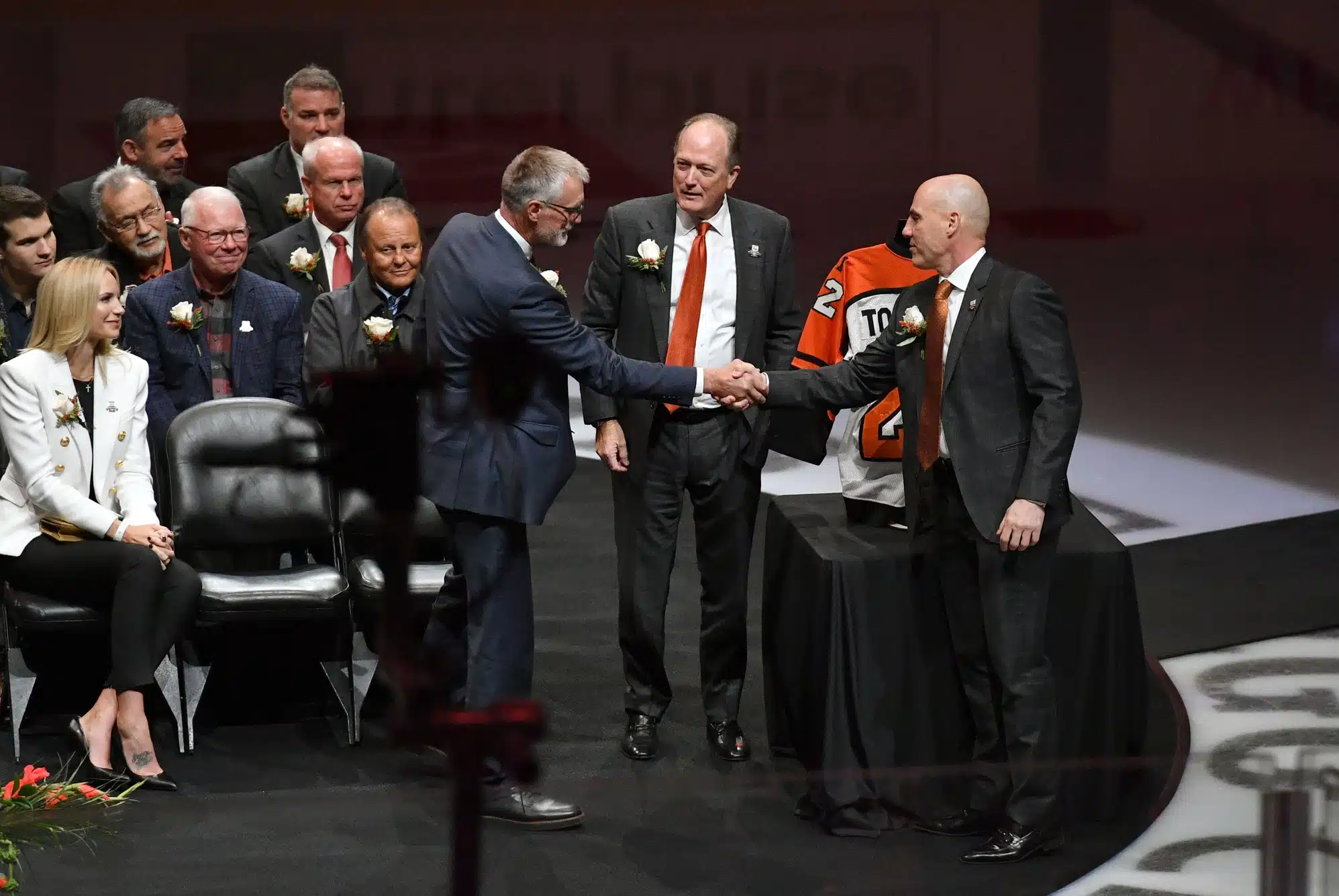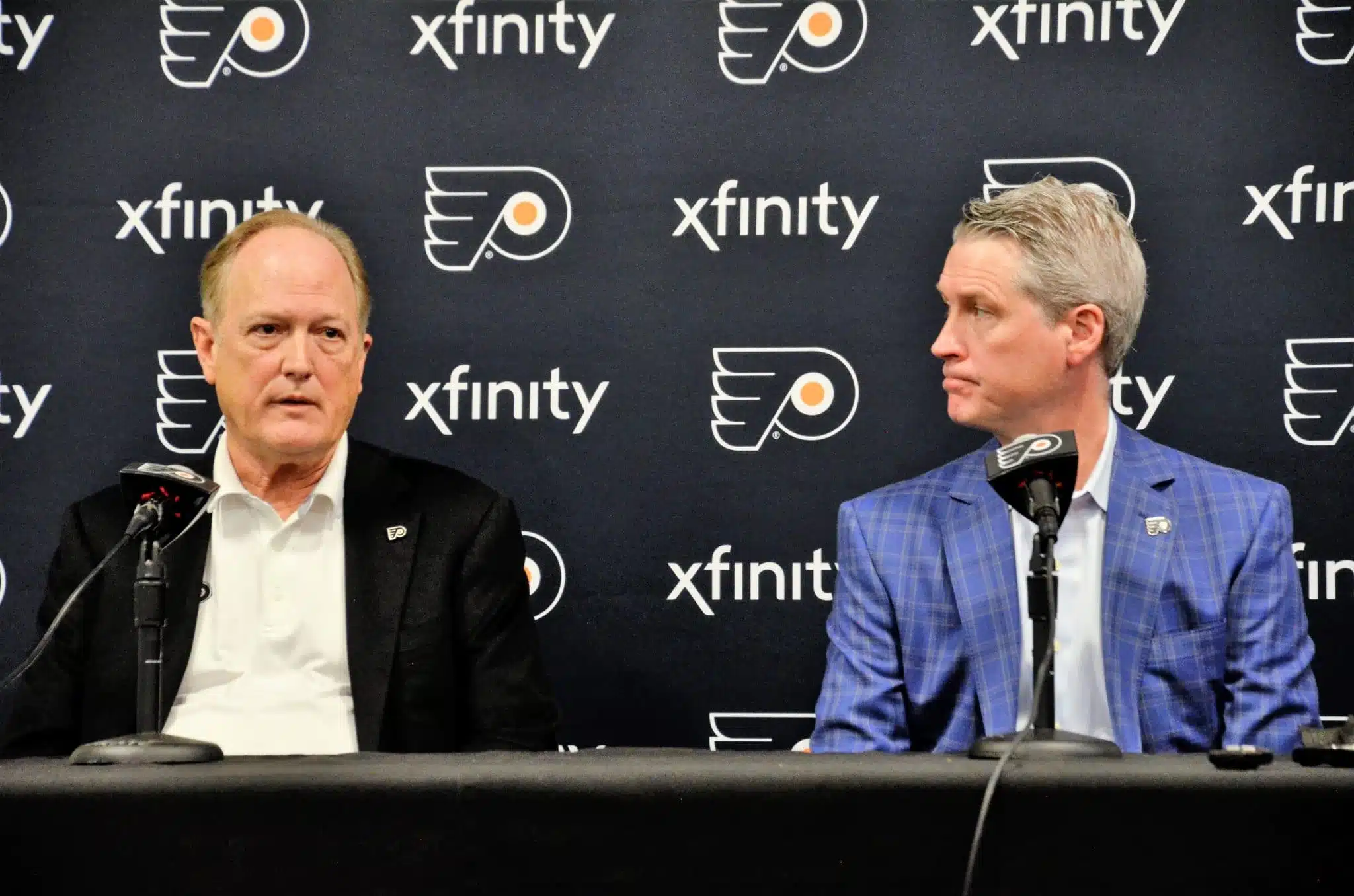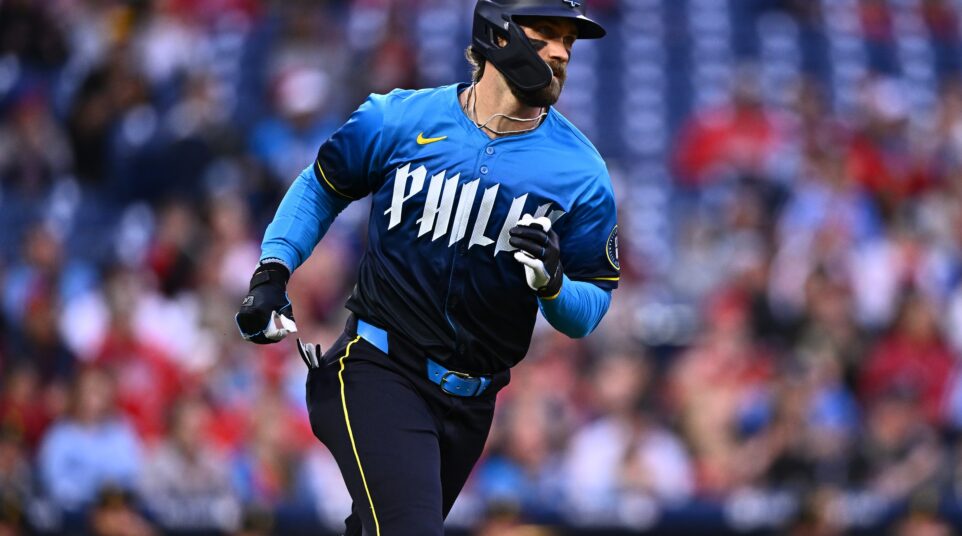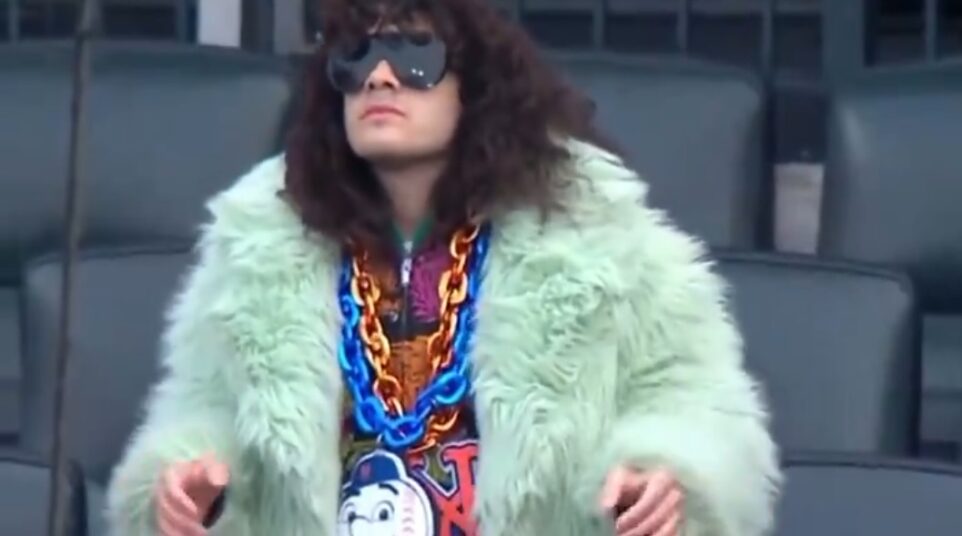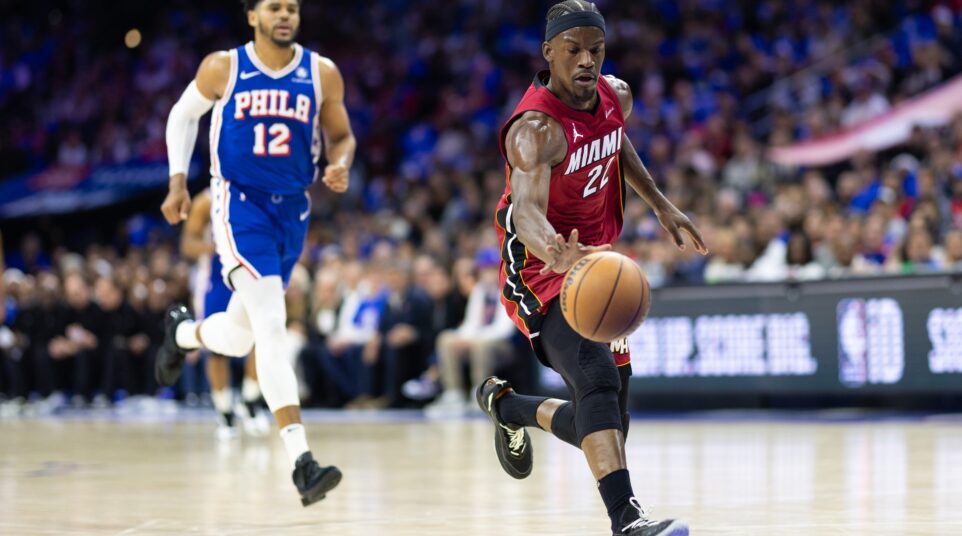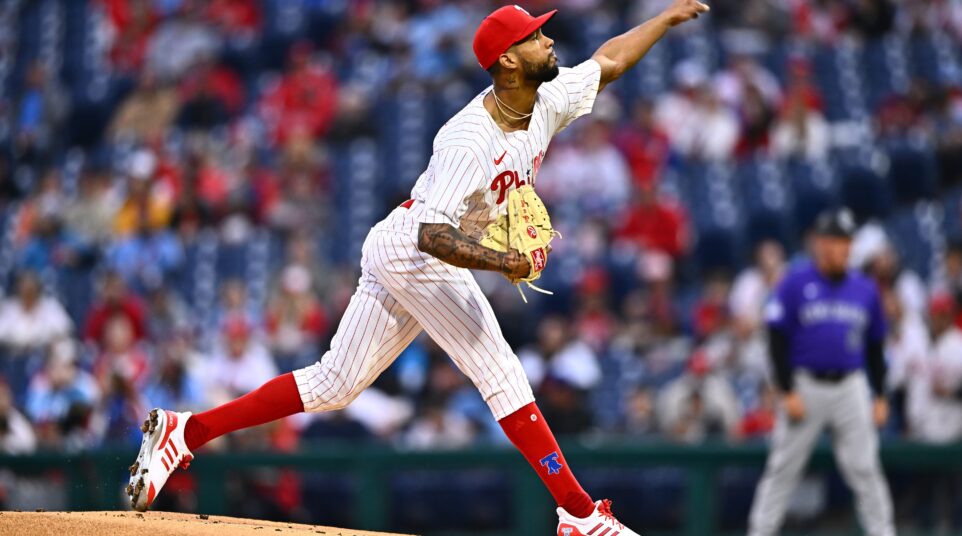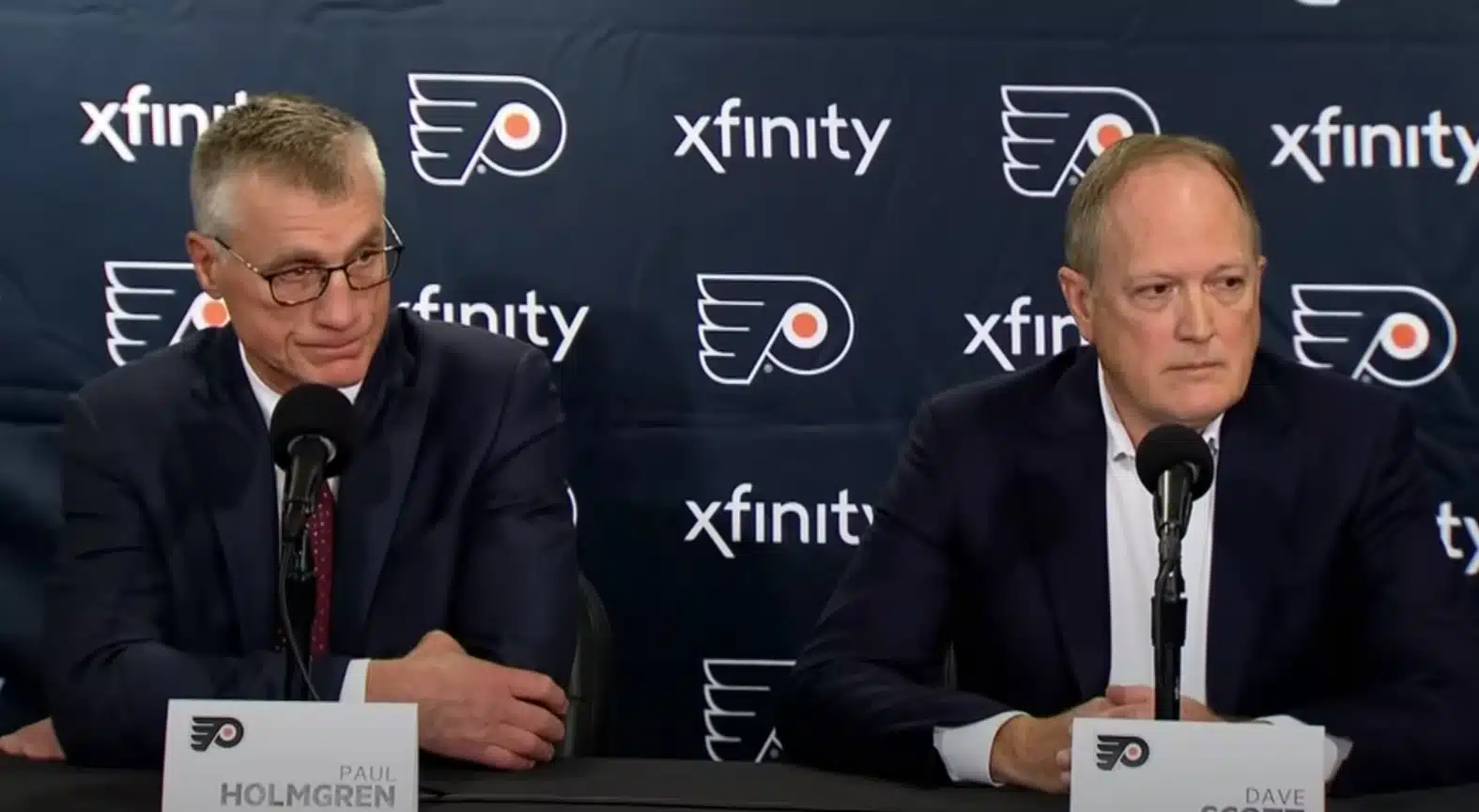
Flyers Stuck in Purgatory Because of Decades Relying on King-Making "Network"
Professional sports, in general, have operated through the “good ol’ boy network” for the duration of their existence.
Hockey, being the smallest of the four major North American sports, has likely had the most frequent occurrence of cronyism and patronage, with players, coaches, executives – you name it – having jobs recycled from one team to another, to another.
In fact, and I didn’t do the research to confirm this, but I can make an educated guess and say more fathers and sons, brothers, uncles and nephews, and overall family ties occur in the NHL more than in the other major North American sports league.
Part of that is how small the sport is in comparison to behemoths like the NFL and NBA. But that also makes it out to be the sport where you are given more rope to fail than any other.
Some would argue that hockey coaches aren’t afforded that luxury, with turnover happening at a pretty rapid rate. But that’s also because their bosses grow impatient, and a lot of times those bosses are in place BECAUSE of the “network” and rather than take responsibility for the failings of their franchise, they deflect blame to the coaches.
One of the fan narratives that exists on the Interwebs is that Bob Clarke and Paul Holmgren are still pulling the roster management strings of the Flyers and they’re the reason the team is still stuck in hockey purgatory.
And while that narrative is completely wrong when it comes to making roster decisions, it’s not far off line when it comes to the malaise that looms over the franchise because of a deep-rooted history of the people in charge all being so intimately linked together.
When assessing the Flyers front office, you must first understand its history and how that “network” has impacted it. While this is going to come across as an orange and black version of Six Degrees of Kevin Bacon, it shows not just how long this has been going on – fans are aware of that already – but just how the connections between these individuals are so deep and how they continue to funnel through their network to keep everything enclosed and power centralized.
Here is a chronology:
- 1967 – Bud Poile is hired as GM of the Flyers.
- 1969 – Poile drafts Bobby Clarke in the second round of the NHL Entry Draft.
- 1972 – Bill Barber is drafted by the Flyers. Cliff Fletcher becomes the first GM of the expansion Atlanta Flames. David Poile, Bud’s son, is hired by the Flames in an entry level position. The Flames select defenseman Pat Quinn in the expansion draft.
- 1975 – Flyers sign minor league defenseman Terry Murray.
- 1977 – David Poile becomes assistant GM of the Flames. Quinn, then the captain of the Flames, retires due to a severe ankle injury. Flyers coach Fred Shero hires him to be an assistant coach. The same year, the Flyers signed winger Brian Burke to a minor league contract. Murray is traded to the Detroit Red Wings.
- 1978 – After winning the Calder Cup with the Flyers AHL-affiliated Maine Mariners, Burke decides to stop playing hockey to pursue a law degree and become a player agent.
- 1979 – Quinn is hired as head coach of the Flyers.
- 1981 – The Flyers reclaim Murray off waivers from the Washington Capitals.
- 1982 – Quinn is fired, but sticks around the area and starts going to law school at Widener University. David Poile leaves the Flames to become GM of the Washington Capitals.
- 1983 – David Poile hires Murray to be an assistant coach of the Capitals.
- 1984 – Quinn is hired as coach of the Los Angeles Kings.
- 1985 – Clarke retires as the greatest Flyers player ever and is immediately installed as the team’s GM by owner Ed Snider, who has, in many ways, adopted Clarke as his hockey son. Clarke hires Paul Holmgren, who also retired after the 1984-85 season, to be an assistant coach. He also hires Barber to be the head coach of the AHL-affiliated Hershey Bears where he coaches a young and colorful goaltender named Ron Hextall. After just 16 games as a coach in the AHL, Barber is promoted to assistant coach of the Flyers. Oh, and in case you were wondering, Barber also retired following the 1984-85 season.
- 1986 – While still under contract with the Kings, Quinn signs another contract with the Vancouver Canucks to become their President and GM beginning the following season. Using his fancy new law degree (which he completed in California) Quinn argued that he had a clause in his contract allowing him to negotiate with other teams if the Kings did not sign him to an extension by a certain date. While true, the NHL ruled this was a conflict of interest, suspended Quinn for the rest of the season, prevented him from taking the Canucks job until the 1985-86 season was completed, and barred him from coaching anywhere in the league for the next four seasons.
- 1987 – Quinn, who coached Burke briefly in Philadelphia, hires him to be the Canucks Director of Hockey Operations.
- 1988 – Clarke hires Holmgren as head coach of the Flyers. Barber is promoted to the Director of Professional Scouting. The Minnesota North Stars hire hockey agent Dean Lombardi as an assistant GM. Jay Feaster, a young lawyer in Harrisburg with no background in hockey, takes interest in the sport when he gets involved with one of his firm’s clients – the Hershey Bears, who are still the Flyers’ AHL affiliate. Feaster leaves the law firm to take a job with the Bears as an assistant to the President.
- 1989 – David Poile promotes Murray to head coach of the Capitals.
- 1990 – With Snider temporarily handing the reigns over to his son Jay, who doesn’t have the same relationship with Clarke as his father, Bob (who is no longer Bobby) is fired after the Flyers miss the playoffs for the first time in 18 seasons. Clarke heads off to Minnesota where he becomes GM of the North Stars. As part of the deal on the sale of the North Stars that would eventually lead to their move to Dallas, the former owner of the North Stars becomes the owner of the expansion San Jose Sharks. Lombardi is one of several employees who moves with him. Feaster becomes GM of the Bears a position he would hold for eight years, working closely with the Flyers front office.
- 1991 – Continuing to do things differently than his dad, Jay Snider fires Holmgren as coach. Meanwhile, Fletcher becomes the COO, President and GM of the Toronto Maple Leafs. With his coaching ban now lifted, Quinn names himself coach of the Canucks.
- 1992 – Burke is hired as GM of the Hartford Whalers. His first move is to hire a coach. He hires Holmgren.
- 1993 – After a very short stint in Minnesota, Clarke is briefly rehired by the Flyers as an executive vice president, thanks to Ed, but then just as quickly leaves to become the first GM of the expansion Florida Panthers. Clarke offers an assistant GM job to a 27-year old with no hockey experience. That person is Chuck Fletcher, Cliff’s son. Clarke and Cliff became close through the years, and hiring his son to such a lofty position was considered a bold move at the time. Meanwhile, Burke leaves the Whalers to go to work for the new NHL Commissioner –Gary Bettman– as the director of hockey operations for the league and as chief disciplinarian.
- 1994 – With Jay Snider having stepped aside and Ed Snider back as the chairman of the Flyers, Clarke returns as GM. Clarke’s first move is to hire a head coach. He hires Murray, who had been let go by the Capitals. Quinn decides to quit coaching the Canucks. He remains president and GM.
- 1995 – Holmgren is fired as Whalers coach 12 games into the season. Clarke immediately hires him as Director of Pro Scouting.
- 1996 – Barber is named head coach of the AHL-affiliated Philadelphia Phantoms. Lombardi is promoted to GM of the Sharks.
- 1997 – Despite guiding the Flyers to the Stanley Cup Final, Murray is fired. Holmgren becomes Director of Player Personnel for the Flyers. David Poile, leaves the Capitals and takes over as GM of the expansion Nashville Predators and hires Ray Shero, Fred’s son, as his assistant GM. Yes, the son of a former Flyers GM hired the son of a former Flyers coach. (Although Keith Allen, who replaced Bud Poile as Flyers GM, hired Shero a year after Bud moved on from the Flyers).
- 1998 – Quinn is fired by Canucks ownership one year after the team was sold. He is replaced as GM by Burke, his long-time assistant. Quinn isn’t out of work long, though, as he is quickly to be the coach of the Toronto Maple Leafs (This was right after Cliff Fletcher retired the first time). Feaster is hired as assistant GM of the Tampa Bay Lightning. Chuck Fletcher is part of the team tasked with finding a new coach for the Panthers. They ultimately choose Murray. Phantoms captain John Stevens retires and Clarke hires him to become assistant coach of the Phantoms, working under Barber.
- 1999 – Clarke promotes Holmgren to assistant GM. Immediately after Hextall announces his retirement, Clarke hires him as a professional scout. Cliff Fletcher un-retires to serve as a Senior Advisor to Tampa Bay Lightning head coach and GM Jacques Demers. Demers leaves the team at the end of the season. Cliff Fletcher leaves as well. Demers later published a memoir admitting he was functionally illiterate and that he had hired Fletcher and Feaster to do all his work for him because he knew he couldn’t read or write. Fletcher would handle a lot of the negotiations while Feaster would deal with contracts and transactional language. Demers knew they would keep his condition secret.
- 2000 – Clarke hires Barber as head coach of the Flyers. Stevens is promoted to head coach of the Phantoms. Feaster pushes for, and finally convinces, Lightning GM Rick Dudley to hire a fiery, young, assistant coach with the New York Rangers named John Tortorella to be head coach of the Lightning.
- 2001 – Murray is fired by the Panthers.
- 2002 – Barber is fired as coach of the Flyers and takes on the role of Director of Player Personnel for the Lightning under their newly appointed GM – Feaster. Hextall is promoted to Flyers Director of Player Personnel. After part of one season serving as interim GM of the Panthers, Chuck Fletcher moves on to Anaheim where he becomes director of player personnel and assistant GM.
- 2003 – Lombardi is fired as GM of the Sharks. Clarke immediately hires him as a Western Conference scout. Clarke re-hires Murray as an assistant coach for the Flyers under Ken Hitchcock.
- 2004 – Burke leaves Vancouver to become GM of the Anaheim Ducks, working closely with Chuck Fletcher.
- 2006 – Stevens is promoted to assistant coach of the Flyers before the season, working alongside Murray under Hitchcock. However, the Flyers get off to a terrible start and after just eight games Hitchcock is fired and Clarke “resigns” as GM (Ed could never publicly fire him), citing burnout. Holmgren is appointed to replace him and immediately promotes Stevens to head coach, leaving Murray in place as an experienced assistant. A month after Clarke’s resignation, he is brought back as Senior Vice President, where he maintains deep involvement with hockey operations. Quinn is fired as coach of Toronto. Lombardi leaves the Flyers to become President and GM of the Los Angeles Kings. One of his first hire is Hextall to be vice president and assistant GM. Ray Shero leaves Nashville and is hired as GM of the Pittsburgh Penguins. He hires Chuck Fletcher as his assistant GM.
- 2008 – In January, Cliff Fletcher signs a 19-month contract to be the interim GM of the Maple Leafs and will help name his eventual successor. One month into the 2008-09 season, Burke resigns as GM of the Ducks. Two weeks later, he signs a six-year contact to become GM of the Maple Leafs. Cliff Fletcher remained with Maple Leafs Sports and Entertainment as an executive and a Senior Advisor to the GM. Feaster resigns from the Lightning and subsequently, Barber is let go by the Lightning and immediately brought back to the Flyers as a scouting consultant. Lombardi hires Murray as head coach of the Kings.
- 2009 – Chuck Fletcher is hired as GM of the Minnesota Wild. Quinn is hired as coach of the Edmonton Oilers. Stevens is fired as head coach of the Flyers.
- 2010 – Lombardi hires Stevens as an assistant coach to Murray for the Kings. Feaster is hired as assistant GM of the Calgary Flames, working under Darryl Sutter. Before year’s end, Sutter is fired and Feaster is promoted to GM. Quinn is fired as coach of Edmonton but remains with the organization as a senior advisor to the GM.
- 2011 – Lombardi fires Murray and hires Sutter to be head coach of the Kings.
- 2012 – Holmgren re-hires Murray to be head coach of the AHL-affiliated Adirondack Phantoms.
- 2013 – With Ed Snider taking on a smaller role within the company he created (he remains the Flyers Chairman), Dave Scott is hired as President of Comcast-Spectacor. Hextall leaves the Kings and returns to the Flyers as assistant GM and director of hockey operations, a role that is designed to groom him to replace Holmgren when he retires. Burke is fired as GM of the Maple Leafs. He is soon hired as President of Hockey Operations by the Calgary Flames where he oversaw Feaster. Before the end of the year, Burke fires Feaster.
- 2014 – Holmgren is elevated to President of the Flyers, replaced by Hextall. Ray Shero is fired by the Penguins.
- 2015 – Ray Shero is hired as GM of the New Jersey Devils.
- 2016 – Ed Snider dies. Scott is also given the titles of Flyers Chairman and Governor.
- 2017 – Lombardi is fired by the Kings. He is soon hired as a Senior Advisor by the Flyers.
- 2018 – Chuck Fletcher is fired in Minnesota. Hextall is fired by the Flyers. Faced with his first time having to hire a GM, Scott, who is an admitted hockey novice, leans on his president (Holmgren) and senior advisors (Clarke and Lombardi) to choose his successor. Their choice? Chuck Fletcher. Burke retires from the Flames to go into broadcasting in Canada.
- 2019 – Holmgren steps down as President of the Flyers, but remains on as a Senior Advisor. Fletcher is given the title of President of Hockey Operations to go along with his title as GM. Knowing he is going to have to be more involved in managerial decisions for the hockey operations front office, Scott gives Barber a new title – Senior Advisor – one which includes the responsibility of getting Scott more up to speed with the day-to-day operation of a hockey team.
- 2020 – Ray Shero is fired by the Devils.
- 2021 – Not their first choice for the role of GM, the Penguins hire Hextall, with the caveat that they also hire a President of Hockey Operations to oversee Hextall. They hire Burke. Shero is hired as a Senior Advisor to the GM of the Minnesota Wild.
- 2022 – Although he is not Chuck Fletcher’s first choice, the Flyers hire Tortorella as their new coach on the recommendation of senior advisors Clarke, Holmgren, Lombardi and Barber, all of whom have Scott’s ear.
The “network” keeps on rolling along….
And it certainly runs deeper and includes more people and potential future hires as well. The title “Senior Advisor” on these various teams is a title that should be more of an “emeritus” status, as a thank you for years and years of service to the company, but instead serves as more of a mafia boss role.
You may be asking yourself, why did I choose today to provide this glimpse into the I-scratch-your-back, you-scratch-mine bit of Flyers history?
Because recent events have proven that the Flyers will never fix themselves until there is a complete overhaul of hockey operations and that the new faces in the department are not “in the network,” so to speak.
Eric Hartline – USA Today Sports
I know the Flyers continue to hang around on the fringes of playoff viability. They won again on Saturday before dropping one at home, 5-3 to the Winnipeg Jets. They are 9-4-0 in the last 13 games, and are seven points out of a playoff spot (which, if you put it in baseball or basketball parlance, it’s the same as being 3 1/2 games out).
As long as they continue to dog paddle in these waters, on the outskirts of playoff contention, it won’t be long until we start hearing the trope, “Well, if we just had Sean Couturier and Cam Atkinson, just imagine how much better we’d be.”
Of course, it’ll be tone deaf. Just like “We’re only five points out of a playoff spot,” in the middle of a 10-game winless streak. Or, “We like our team and expect to compete this season.” And then there’s the now infamous “Aggressive re-tool,” and countless other verbal snake oils that have been lobbed in the direction of the fans.
I also know this isn’t the first time I’ve called for Scott to blow up the front office. But this time, it has gone well beyond just doing a bad job constructing a team, or trying to pull the wool over the eyes of the fanbase. Now, it’s grown to a point of what my partner on Snow the Goalie likes to describe as “institutional arrogance.”
I’m not here to re-litigate the Ivan Provorov controversy from last Tuesday. Everyone has a stance on that, and there was plenty of consternation on Twitter between political factions over an issue that should never have been politicized.
That being said, after reading Charlie O’Connor’s well-researched piece in The Athletic, and seeing how the hockey operations department knowingly left not just the business operations side out of the loop on this matter for a whole week, but ownership as well, forcing them to have to improvise and adapt to the situation as if it were breaking news and not something they could have adequately prepared for in advance, is a living, breathing example of how once you are in this “network” you feel like you’re untouchable.
It’s like an HBO series with the Flyers right now – a cross between Game of Thrones and The Sopranos. On the one hand, everyone is looking out for their best interest and has no problem working in the shadows to share secrets in hopes that one person’s failure or demise will lead to their own ascension, albeit everybody targets different thrones.
Yet, at the same time, these same people, especially the collective in Voorhees, who are spinning narratives of dissension, discord and deceit from within, will bond together through a sworn allegiance of blood to ensure their circle of trust and power stays small and manageable. They’ll ensure it doesn’t include everyone, even those who are part of the larger organization tasked with working together for the success of the franchise.
But don’t let that circle get too small, because then the others who have been so unwilling to yield authority for so long will put a proverbial bullet in the back of your head. Just ask Ron Hextall how shit went down.
via Flyers presser
It’s also why certain individuals are hell-bent on finding leaks in their organization, looking for rats so they can take care of them just as the mafia does when one of their own agrees to become an informant.
And at the top is Scott, who right now is running the Flyers much in the way Uncle Junior Soprano was running the crime family. He’s in charge, but we all know who’s really pulling the strings.
That’s why Scott needs to switch to more of a Thrones mentality. He needs to plan the Red Wedding. He needs to take out the “network” before they find a way to get to him.
On the day Charlie’s story came out, I spoke with two people who I frequently talk to on the hockey operations side of the organization. These are two individuals who I have built a trusting relationship with and who often share sourced information with me that I then try to figure out the best way to pass on to the fanbase, ensuring all tracks are covered.
I have to admit I was surprised by both when discussing the decision not to communicate what was going on with Provorov to business operations and ownership in advance of Pride night.
One of them said, “They’re on a need-to-know basis with us, and they didn’t need to know until they did.”
The other said, “(They) can be pissed off all (they) want. They don’t run hockey ops.”
A franchise can not operate when all parties aren’t pulling on the same rope. It becomes traitorous on the inside, it looks like a complete and utter shit show from the perch where I sit, not close enough to be involved, but close enough know a lot of what goes on behind the curtain.
But for the fans, for the people who spend their hard-earned money supporting this franchise, and giving their heart and soul to them, although they remain on the outside, all that is left are for there to be feelings of anger, frustration and disappointment.
It’s not that these are bad people. They’re all good guys. They just have done things the same way for so long, that that don’t even see the negative impact that this recurring process has had on the organization and it’s place in the Philadelphia sports landscape.
Right now, only one person can make the move necessary to change that. To stop being led on like he’s Pinocchio and the whispers in his ear are coming from Honest John and Gideon. Dave Scott needs to go against the almost 56-year run of the orange and black La Cosa Nostra and do it differently.
And if he’s not willing to… well… another season of mediocrity is bad enough, but the long-term health of the franchise within the Philadelphia sports landscape would be greatly compromised.
It’s time to choose violence, figuratively, of course.
With apologies to our Radio Wars series… Play the music.
[the_ad id=”103880″]
